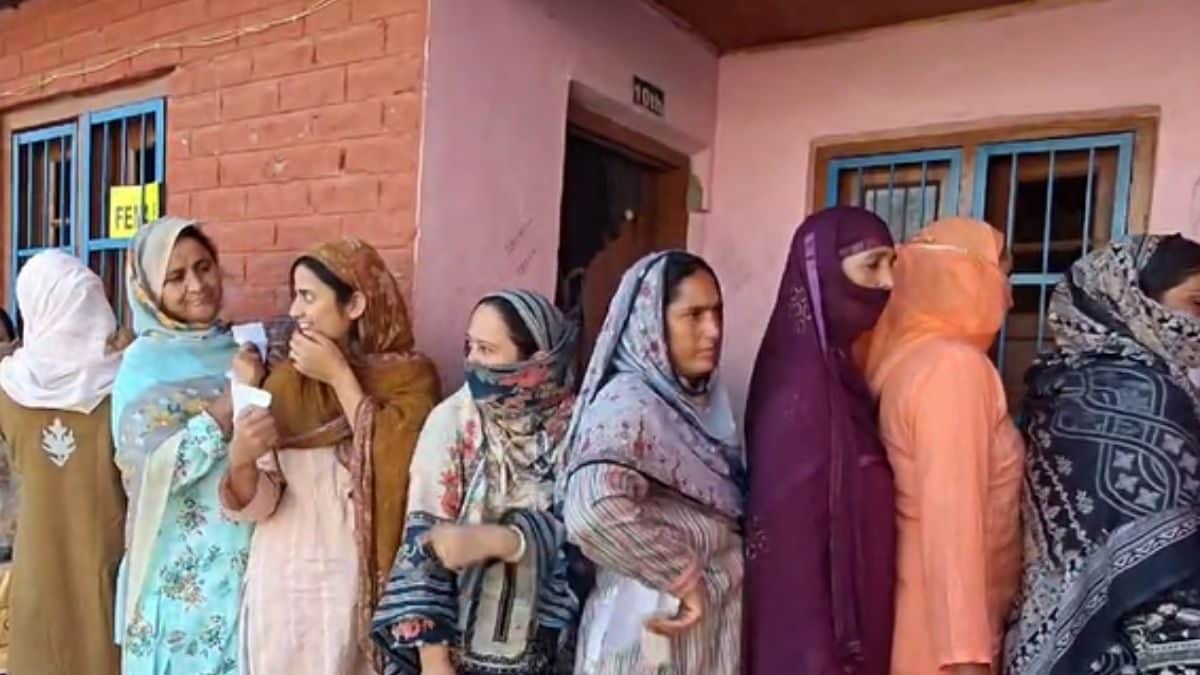Last Updated:

Voters queued up at a polling station in Shopian. (File image/News18)
J&K exit poll results: Here’s what’s in store for the union territory where assembly elections were held for the first time since 2014
With voting wrapping up at 6pm on Saturday for the Haryana assembly elections, exit poll predictions for the state as well as Jammu & Kashmir will be announced. The three-phase elections for the 90 seats in Jammu & Kashmir concluded on October 1, marking the first assembly polls in the union territory since 2014. J&K registered a voting percentage of 63.45 per cent, higher than the turnout recorded in the April-June Lok Sabha elections.
These are the first elections held in the union territory since the abrogation of Article 370 sections. High-profile leaders, including Prime Minister Narendra Modi, union home minister Amit Shah, Lok Sabha leader of opposition Rahul Gandhi, and former J&K chief ministers Farooq Abdullah, Omar Abdullah, and Mehbooba Mufti, held extensive campaigning for weeks.
The National Conference (NC) and the Congress have formed an alliance for these elections, while the People’s Democratic Party (PDP) and the Bharatiya Janata Party (BJP) are among the other major contenders apart from some strong independent candidates.
During the 2014 assembly elections, pollsters like C-Voter predicted that the BJP would win between 27 and 33 seats, with the Congress securing 4 to 10 seats, the National Conference (NC) gaining 8 to 14 seats, and the People’s Democratic Party (PDP) projected to win 32 to 38 seats.
Ultimately, the PDP emerged as the largest party with 28 seats, while the BJP won 25, the NC secured 15, and the Congress finished with 12 seats.
In 2008, elections took place over seven days in November and December. The previous government, a coalition between the Jammu and Kashmir People’s Democratic Party (PDP) and the Indian National Congress (INC), collapsed after the PDP withdrew its support.
Following the elections, the Jammu and Kashmir National Conference (NC) formed a coalition with the Congress, leading to Omar Abdullah becoming the state’s youngest chief minister at the age of 38.
That year, exit polls indicated that the National Conference was projected to win the majority of seats in the Valley, while the Congress was expected to secure the majority in the Jammu region.
www.news18.com
Source link









